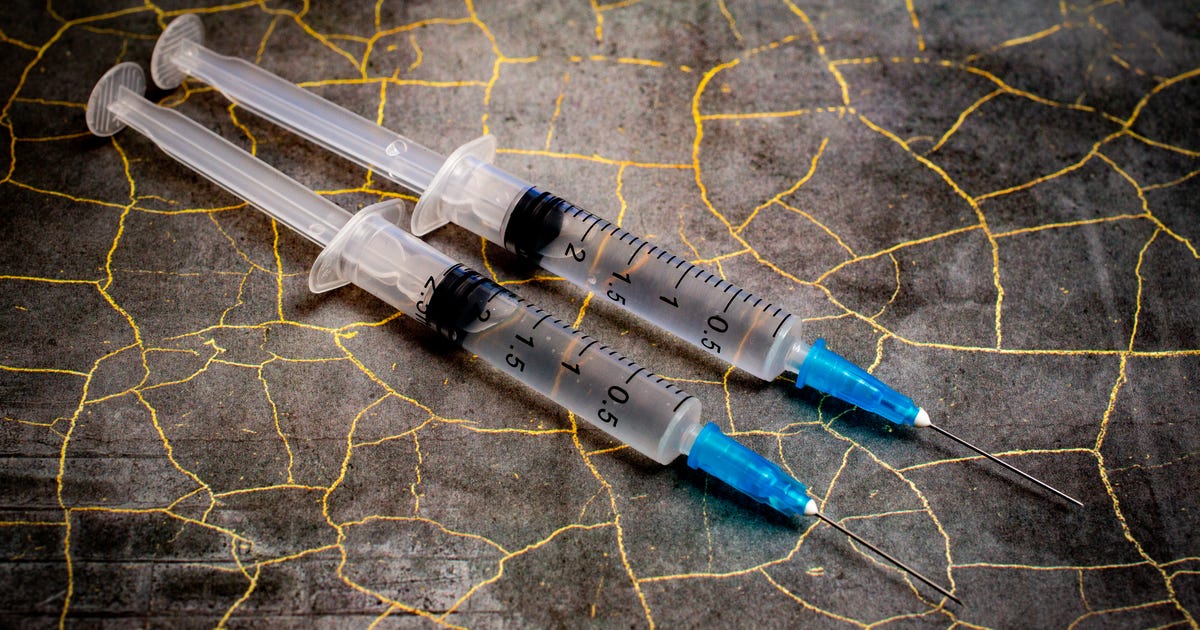
Pfizer and Moderna are mRNA vaccines, which teach our cells to make a specific protein and build immunity against a virus.
Both mRNA vaccines, Pfizer and Moderna, have proven to be effective and continue to protect against severe disease caused by COVID-19.A study published by the CDC in September that compared vaccine effectiveness among adults in the real world found that two doses of Moderna's vaccine were 93% effective at preventing hospitalization, two doses of Pfizer were 88% effective and one dose of Johnson & Johnson was 71% effective.
Pfizer's booster is the same dose as its original vaccine (30 micrograms), while Moderna's booster (50 micrograms) is half the size of its original vaccine.Johnson & Johnson's booster is also the same size as its original vaccine.
In a study that examined people's responses to all three vaccines as boosters, people who originally got Pfizer had the strongest antibody response to a Moderna booster.
However, that study examined a full dose of Moderna (100 micrograms), rather than the authorized half-dose of the company's booster, which likely minimizes Moderna's edge over Pfizer, The Atlantic reported.
Similar to Pfizer, most Moderna recipients probably don't have a need to choose a different booster, unless how quickly they can get an appointment is an issue.An early report on Canadian data also suggested Moderna might carry a higher risk of myocarditis, an uncommon side effect of the mRNA vaccines mostly seen in men under 30, compared to Pfizer.
With this assumption, a man under 30 who originally received Moderna but is concerned about myocarditis may ask a health care provider about switching to Johnson & Johnson or Pfizer.
But again, Moderna's booster is a smaller dose than its original vaccine, which could be a factor in your decision. .
In a clinical trial shared by Johnson & Johnson, a second dose of J&J two months after the first shot made the vaccine 94% protective against symptomatic COVID-19.
In general, people who originally received Johnson & Johnson's vaccine and have a health condition that makes them more susceptible to severe COVID-19 should be especially aware of the benefits of mixing with an mRNA vaccine and the higher immune response it seems to bring.
The guidance was that people age 50 and older "should" get a booster (a younger age than the previous guidance for everyone age 65 and older), in addition to other groups who "should" get one because of a clearer benefit, including adults living in long-term care facilities and everyone who received Johnson & Johnson's vaccine
You're fully vaccinated two weeks after your second Pfizer or Moderna shot or two weeks after your Johnson & Johnson vaccine
In a study published in the journal Nature, researchers in Spain found that people who received one dose of AstraZeneca (a similar vaccine to Johnson & Johnson) and then received a dose of Pfizer seem to produce a higher antibody response than people who receive two doses of AstraZenecaAs of now, the FDA has only authorized a mixed-series booster, meaning the first coronavirus vaccine series must be one dose of Johnson & Johnson or two doses of Moderna or Pfizer.